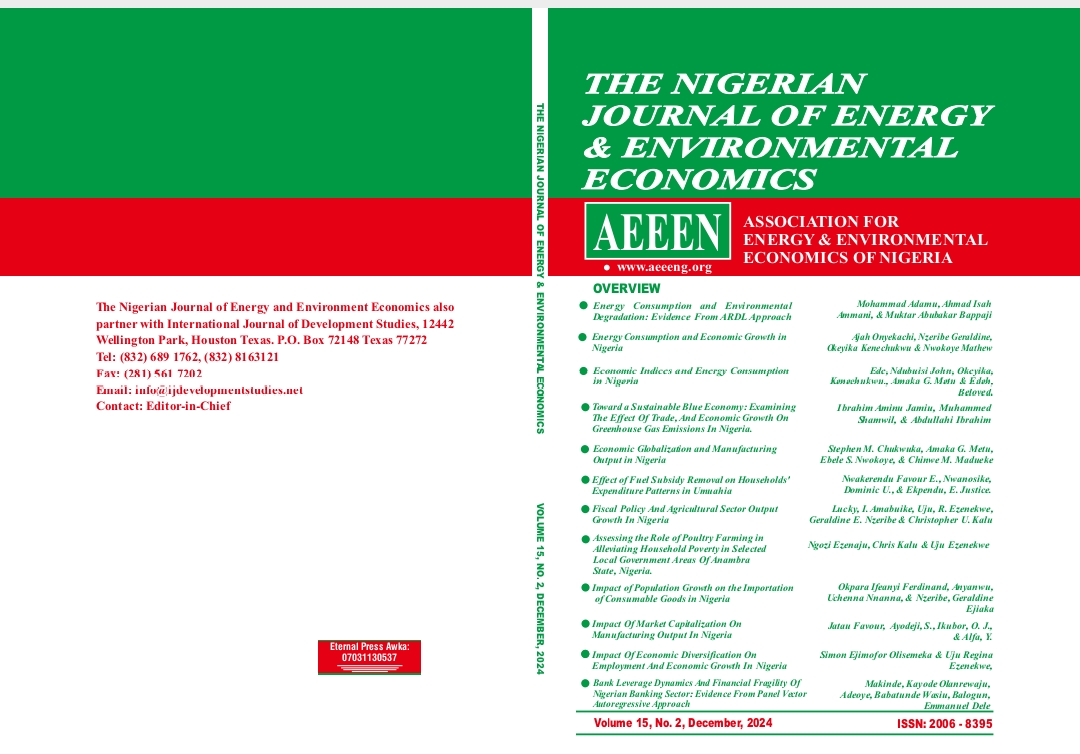TOWARD A SUSTAINABLE BLUE ECONOMY: EXAMINING THE EFFECT OF TRADE, AND ECONOMIC GROWTH ON GREENHOUSE GAS EMISSIONS IN NIGERIA
Keywords:
Blue economy, greenhouse gases, trade, environment, Nigeria.Abstract
The concept of blue economy first introduced in 2010, highlights the use of marine resources for
sustainable economic growth, jobs creation, marine health, and to improve living standards. However,
climate change in form of global warming, ocean acidification, and lack of knowledge about the ocean
resources posit serious challenges for sustainable blue economy. Therefore, the main objective of this
study is to investigate the dynamic effect of greenhouse gas emissions, economic growth, trade
openness and financial development on blue economy resources in Nigeria spanning the period from
1990 to 2022. The innovative dynamic autoregressive distributed lag (D-ARDL) model was employed
to achieve this objective, while fully modified ordinary least square (FMOLS) and canonical
cointegrating regression (CCR) were applied for robustness check. The results of the dynamic ARDL
model indicate that a rise in greenhouse gas emissions and economic growth raise blue economy
resources both in the short term and in the long-run, Similarly, trade openness and financial
development are positively linked to blue economy resources. Finally, the results from the FMOL and
CCR models confirmed the findings of the dynamic ARDL model. Based on the findings, the study
recommends that, government should encourage the promotion and preservation of the blue economy
resources in Nigeria, while leveraging sustainable economy, trade and financial development and
reducing greenhouse gas (GHG) emissions, through the use of environmentally friendly aquaculture
systems such as Integrated Multi-Trophic Aquaculture (IMTA), Recirculating Aquaculture Systems
(RAS), and organic aquaculture. These methods reduce environmental impact, improve fish health, and
increase production efficiency.


